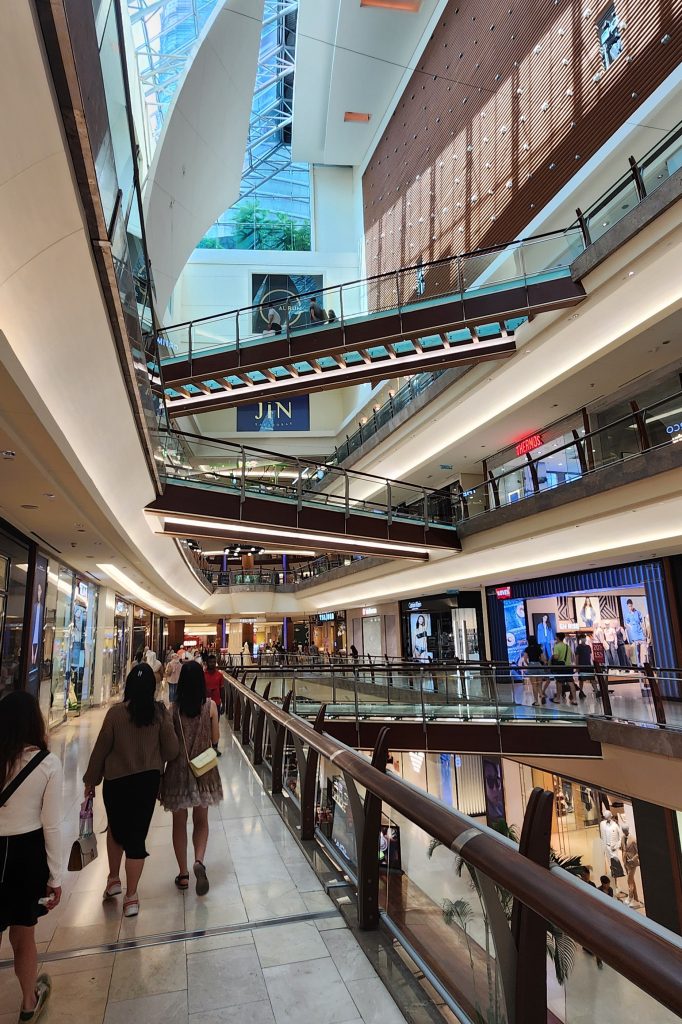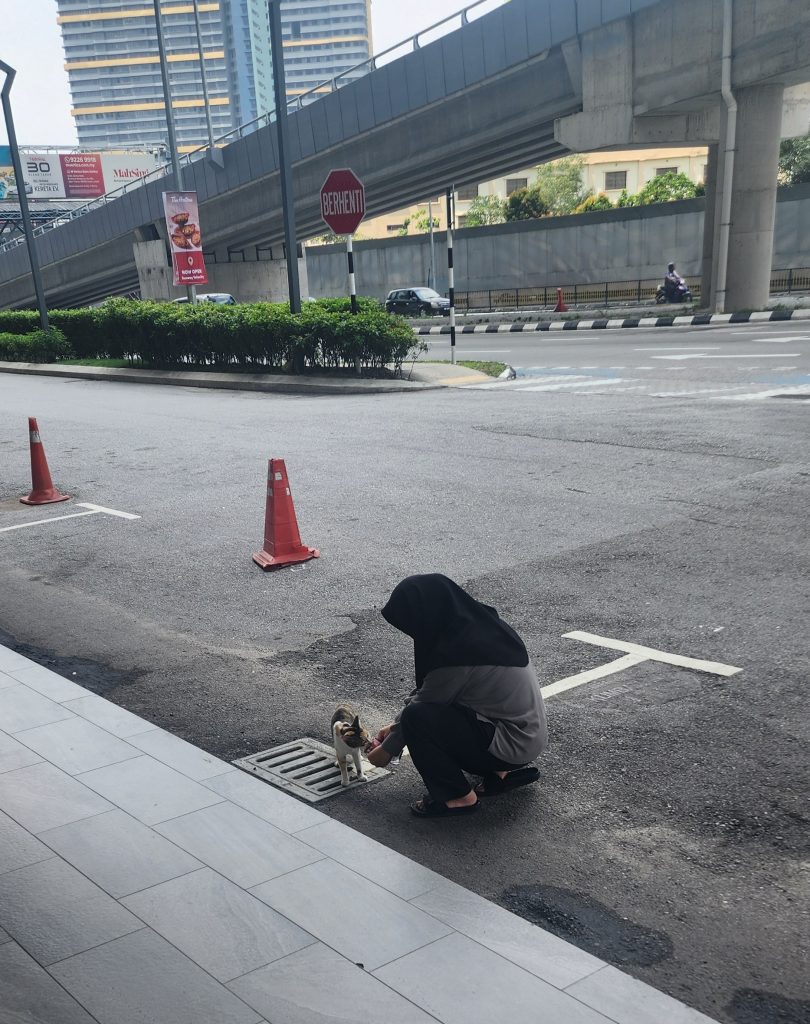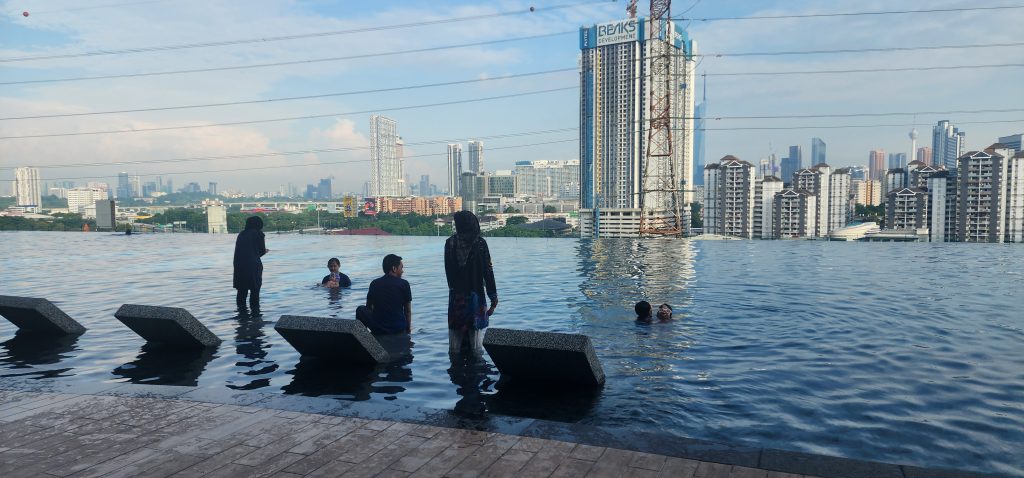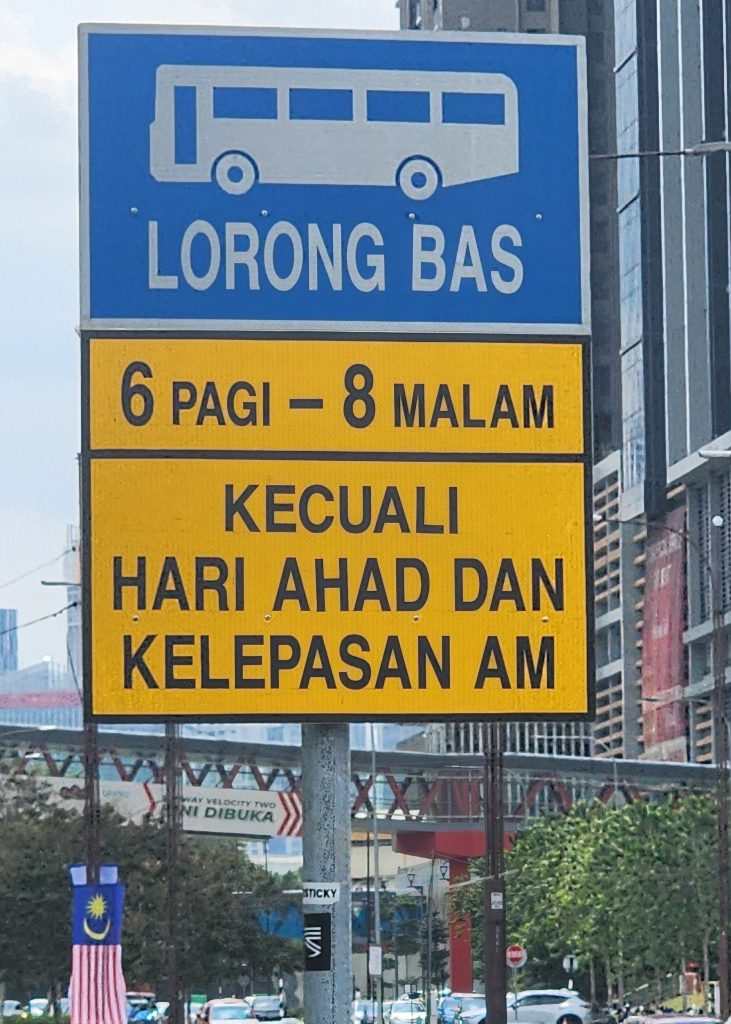Though my time in Malaysia was brief, I had an incredible experience. Kuala Lumpur was the first city I visited outside the Americas—a vibrant, bustling melting pot. It’s a modern metropolis with all the conveniences one could want, yet retains an old-world charm. A unique blend of sleek skyscrapers with historic markets scattered about.
Kuala Lumpur (KL) boasts an extensive and interconnected mall system so vast that one can almost tour the entire city. These malls are linked via sky bridges, are massive in size, and are impressively beautiful. Initially, they evoked a sense of nostalgia for me, as many malls back home have declined due to the rise of online shopping platforms like Amazon. However, over time, I realized that clinging to this nostalgia was unnecessary, and I came to understand that KL might not be the right place for me.

Why wasn’t Kuala Lumpur the right place for me?
As a non-Muslim, adapting to life in a predominantly Islamic society came with challenges. This isn’t a critique of Islam or Malaysians—who, honestly, are some of the kindest people I’ve met—but an acknowledgment of the cultural and religious dynamics that shape daily life. Seeing women in burqas on the streets was a constant reminder of how deeply Islam influences public life.


KL is a diverse and expansive city, with over 137 languages spoken and various religions practiced. However, Islam remains the dominant religion, and its influence permeates many aspects of daily life, which can be challenging for some non-Muslims. They will also tell you that English is the dominant language, but take that with a grain of salt.

Malaysia and Islam
Malaysia isn’t what you might imagine—it’s more complex, more diverse, and entirely unique. Whatever assumptions you have about it, they’re probably wrong. It’s a place that blends cultures, traditions, and religions in a way that’s hard to put into words. Don’t let Islam intimidate you, but do take the time to understand it before you go. A little research will go a long way in helping you appreciate what makes Malaysia so special.
For more insights into the role of Islam specifically in Malaysia, you might find these articles helpful:
These resources should help you better understand Malaysia’s cultural and religious landscape, especially if you’re considering moving there. I know not everyone can just travel as freely as I do, and honestly, the only way to truly grasp a place is to experience it firsthand.
My time in Malaysia was a crash course in life in Southeast Asia. I adapted to new cultures, languages, traditions, and expectations—all while still having access to the American-style comforts I had feared leaving behind. For that, I’m grateful. I like to call Malaysia “Southeast Asia for beginners” because it’s the perfect place to ease into the region.
English is widely spoken, locals are used to seeing foreigners, and there’s always something to do. Plus, the public transit system is massive, affordable, and safe, making it easy to explore wherever you want to go.
The True Melting Pot
As far as culture goes in Malaysia, it is incredibly rich and unlike anything I’ve ever experienced. The country is home to a diverse mix of ethnic groups, including Chinese, Indian, Malay, and Indigenous peoples, all of whom bring their unique traditions, cultures, and cuisines. One of the fascinating groups is the Chindu people, a blend of Chinese and Indian Hindu heritage, who have their own distinct culture and delicious food.
You can easily spot a Chindu restaurant by the presence of a chubby Buddha statue alongside a Hindu god statue in the window. The Chindu community has a vibrant, awesome culture that’s completely different from Malay culture or any other group as well.
Malaysia’s diversity doesn’t end there—it’s one of the most multicultural countries in the world, the true melting pot, exhibiting a harmonious blend of totally different people. The country also holds the record for having the most public holidays of any nation. Everyone celebrates them together as well. It’s a country where various ethnic groups unite to honor each other’s festivals, creating a unique atmosphere of inclusivity and cultural exchange.
Malaysia is not just a wonderful place to live, but a place to visit and truly experience the beauty of diversity. That being said, Islam is still the dominant religion, and in my eyes, is constantly trying to grow and stamp out all the others. It’s a constant problem, and many of the people I befriended there had many complaints.
Malaysia and LGBTQ+
One of my favorite places to visit in Kuala Lumpur was a local gay bar. Opening such an establishment in a country where homosexuality is criminalized and can lead to severe penalties, even death.
This bar, known as “The Secret Garden,” provided a safe and welcoming space for the LGBTQ+ community amidst a complex legal and cultural landscape. To look into LGBTQ+ rights in Malaysia, I’ll share a wiki page, something I never do, because there is simply no where else to find this information: en.wikipedia.org
The Secret Garden, tucked away in the heart of Kuala Lumpur, is more than just a venue—it’s a refuge. A place where people find not only entertainment but a sense of belonging. I may not be part of the LGBTQ+ community myself, but this is where I made most of my friends. Spaces like this exist in defiance of the legal and cultural challenges LGBTQ+ individuals face in Malaysia, serving as vital hubs of support and community. It’s an ongoing struggle, one deeply intertwined with the country’s dominant religious influences.
If you’re part of the LGBTQ+ community and planning to visit, know that while places like the Secret Garden offer safety and solidarity, the reality of life here is complex. In many ways, stepping into this world feels like traveling back in time. Photos weren’t allowed, for understandable reasons—otherwise, I would share them here.
Siem Reap, by contrast, carries none of these same burdens. LGBTQ+ individuals are widely accepted here, moving through life without fear or restriction. It’s a freedom that stands in stark contrast to what I witnessed in Malaysia, and one that shouldn’t be taken for granted.
